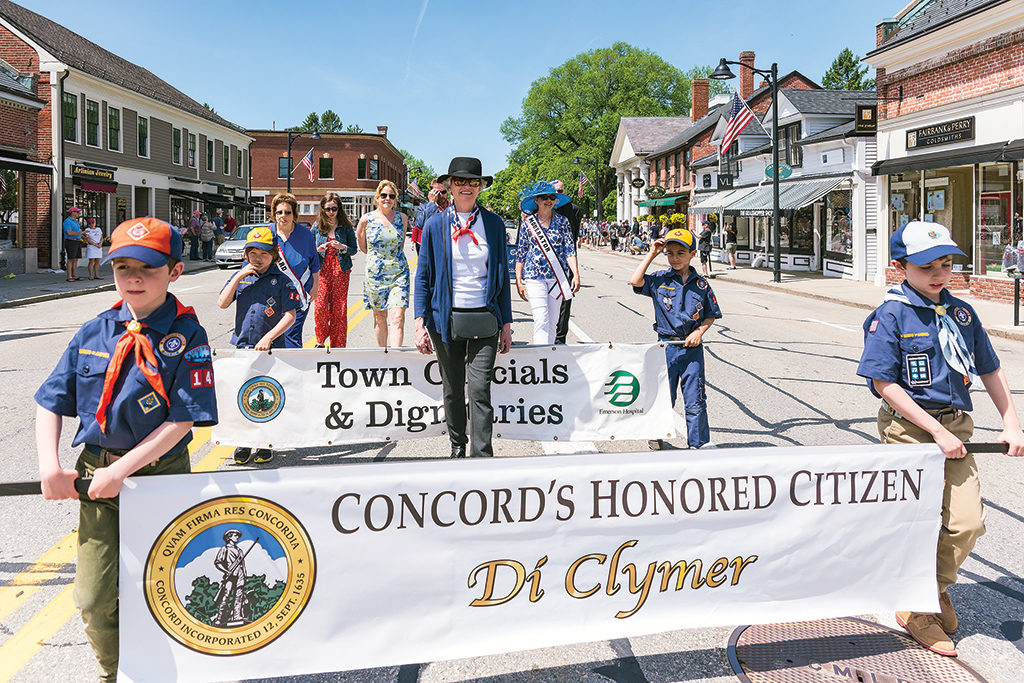A community treasure

Diana “Di” Walker Clymer ’65 remembers that first spark that fueled her lifelong love of volunteering.
She was a junior at Wheaton, toying with the idea of majoring in sociology. A family member suggested volunteering, and she immediately researched community organizations that could benefit from her help.
Soon, Clymer and classmates she recruited at Wheaton were piling into two cars to make the trek to Dorchester, Mass., where they volunteered at an after-school program.
“We drove in, every other week, to do parties with kids. We’d bring refreshments, play games; it was just a really fun experience and eye-opening to see what a group of people together could do to boost a program. It proved to be quite rewarding,” Clymer recalled.
The alumna did not end up majoring in sociology (she chose art history), but that experience ignited decades of tireless volunteerism in her hometown of Concord, Mass. Among the many causes that she has given her time: Concord Free Public Library, League of Women Voters, Concord Historic Districts Commission, Concord Art Association, Concord Cultural Council and Concord Prison Outreach.
In March, the Town of Concord recognized Clymer’s significant contributions, naming her its 2019 Honored Citizen.
A letter nominating her stated, “Everything Di touches turns to gold. And she has touched and helped so many people and organizations during her long tenure as a Concord resident.”
Clymer said of all of her volunteer efforts, she is most proud of her experiences working with the incarcerated at Massachusetts Correctional Institution (based in Concord). In the 1960s, in an effort that she originated as a member of the social responsibility committee at her church, she launched various prison reform programs.
For the Concord Prison Outreach program, she recruited volunteers to teach courses at the prison on topics ranging from career development and parenting to calligraphy and knitting. Currently, about 150 volunteers participate in the program.
“Some men work on the calligraphy so earnestly, you would think you were at a monastery. The men so appreciate having these programs,” Clymer said.
The most rewarding aspect for her was seeing how the outreach affected volunteers. “Volunteers with whom I worked in prison ended up changing their careers to minister, teacher, counselor, etc. It has a profound effect on people,” she said.
From the outreach program evolved a restorative justice program, which Clymer said she helped create to address the high recidivism rate.
The program serves young people who commit misdemeanors or nonviolent crimes—individuals specifically identified by the police department to receive intervention.
Trained volunteers lead circles, which include the offender, parents, the victim, a support person and three volunteers. Elements of a circle’s restorative program usually include community service, a written apology, a reflection by the offender on the harm caused and may also include restitution when there has been a financial cost to the victim.
Clymer’s volunteer efforts have paid dividends. Due to the success of the program, other communities have duplicated this model. The restorative justice program now is active in 24 cities and towns, including Boston.
